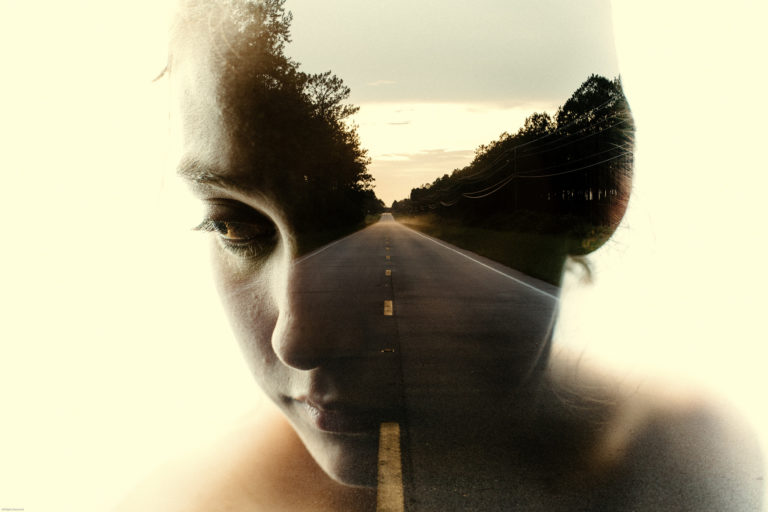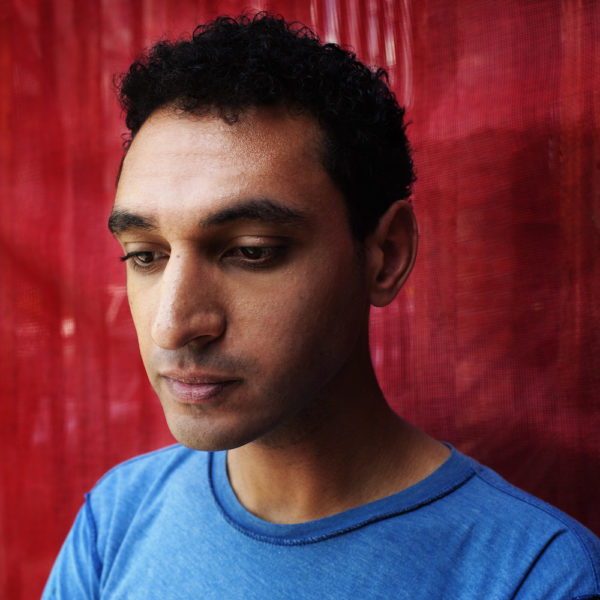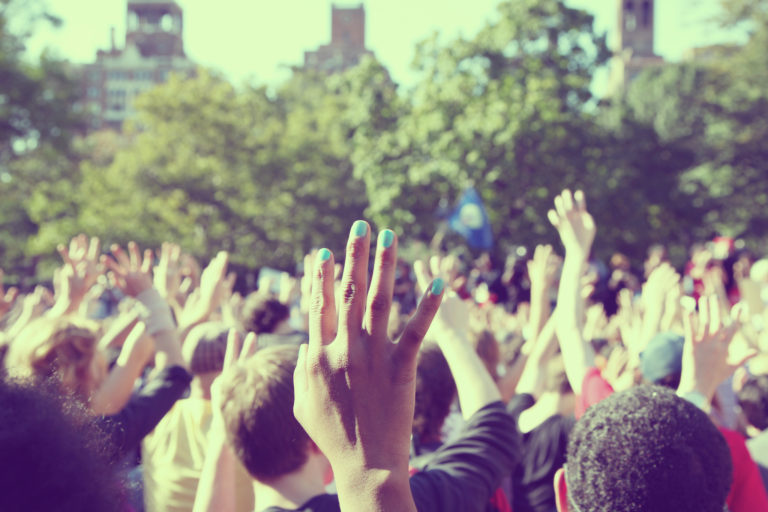
Image by Brandon Kidwell.
The Age of Cynicism
The age of anxiety has given way to the age of cynicism. Among my generation, cynicism is no longer a bad word: it’s being celebrated, and often it’s mistaken for intelligence.
But cynicism is not intelligence. At its very best, it is the cause of missed opportunities as many of my age close their emotional and intellectual pores to new experiences. At its worst, cynicism can be a dangerous, world-breaking state of mind. A healthy amount of skepticism can be smart, but, just as Voltaire once painted a picture of Dr. Pangloss in his novella Candide as a foolish, wide-eyed, stubborn optimist, we are now seeing an explosion of the exact opposite personality type. Like the character of Martin from Voltaire’s same novella, this doomed and distrustful world-view is equally foolish, equally stubborn, and, at its nadir, much more hazardous.
I recently went to an art opening in my Manhattan neighborhood of Chelsea where I was grateful to see so many young faces in attendance. The artworks, all recently created by a diverse group of young artists, overwhelmingly veered in the direction of the bitterly, unrelentingly ironic. The young attendees were really into this. It was resonating with them.

This particular exhibition was not a unique recent experience. There seems to be a consensus on the art scene as well as in so many of the recent novels and poetry collections that I’ve read: irony is intelligent; it’s better to be wry and distrustful than to be open and trusting; warmth, love, and loyalty are passé. Video games need to be unrealistically violent in order to be considered “realistic.” Movies need to go further and further in search of shock and awe.
Of course there’s room for all of this in the world. Pasolini’s Salò remains one of my favorite films and Orwell’s 1984 is an important novel, but the themes of these works can be more fully understood only with an understanding of their contrapuntal themes. It’s hard to understand dystopia without being able to trust the many affirming flames that are ignited in the world on a daily basis. The landscapes of the darkest works of art pale in darkness to a world of perfection where there is nowhere to go and nothing to know.
But there’s the rub. We have to be willing to open ourselves up and to believe in something bigger than ourselves in order to go somewhere. We need to be convinced that there are things worth knowing so that we can cultivate the spirit, energy, and drive needed to follow that journey. We have to be willing to listen to, and be inspired by, the teachings of our elders and the learning of a thousand generations of humanity. We have to trust, even though we are the internet generation with much of the knowledge of the world at our fingertips, that we are not so clever that we can snub our collective noses at the great anthology of human experience. That takes intelligence, yes, but also trust, belief and sometimes even blind faith.

Instead, I belong to a generation that seems to be deeply hurt. I remember how much my parents disliked the word “hate” so much so that they refuse to use the word to this very day. If they ever caught me using it they’d warn me: “Mohammed, that’s a very strong word.” Today that seems like a strange thought. It’s completely normal in a social setting for someone, having had very limited interaction with another person, to turn around and say “I hate that person” without anyone batting an eyelid.
Conversely, saying “I love that person” would result in eye-rolls at the very least and even serious concern. The idea is that you have to know someone for a very long time to love them — trust in loving the energy of another human being; their aura and their silent company is seen as a sentimental artifact of the past. But hate, the most destructive emotion in the world, is welcome to be expressed immediately.
At its very worst, cynicism can engender what Robert Frost articulated in The Death of the Hired Man: the predicament of having “nothing to look backward to with pride / And nothing to look forward to with hope.”
This can breed, at its most extreme, the nihilistic and violent worldview that is attracting so many young people to gun violence in Europe, church, and school shootings in the United States, and a whole crop of youngsters from all over the world to join dangerous cults such as DAESH (ISIL) in Iraq and Syria. And, indeed, organizations like DAESH have wantonly attacked the common heritage of mankind by attacking our past (the destruction of the Mosul Museum, the attacks on Palmyra…) as well as our future. Their apocalyptic worldview has nothing to do with Islam, but they refer to this most uncynical faith as a way to justify their nihilistic view of the future. In their own words: “We love death as the rest of you love life.”

Apparently it hasn’t occurred to them that if the original Muslims wanted to destroy the ancient sites of Iraq, Syria, and beyond then they would’ve done so themselves when they entered these lands. But they didn’t because the Prophet and his followers were Muslims, the practitioners of a religion whose first command is to “read” so that we may be “taught what we did not know before.”
This optimistic worldview leads not only to the preservation of the culture and antiquities of the pre-Islamic Arab world but also to the preservation, translation, and proliferation of the culture of the world at large. By translating, preserving, and annotating the works of classical Greece and Rome, the Muslim scholars of old were betting on the future. This optimism reached a physical manifestation in structures like Baghdad’s famed House of Wisdom.
During my travels today, it’s a strange phenomenon that from the United States and Canada to Europe, Arab Gulf countries, and Australia, I’ve seen an extremely prosperous young generation adopt such negativity and doubt. Both inner and outer doubt.
This youthful group has seen an affluence and abundance that could not have been imagined 70 years ago, but they can’t seem to capture the forward-looking optimism and grit of their grandparents. After all, optimism takes courage. The main ingredients in trust are daring and audacity — not blindness. Yes, if we open our emotional pores, we can be hurt. If we allow ourselves to love, we can suffer heartbreak. If we set out to write a great symphony or build a great monument, we can fail, falter, and fall.

It takes courage, yes, but we should be prepared to jump into the ocean of life. We should be prepared to suffer all the heartbreak, hurt, and failure in the world in order to experience the ups and downs of what it means to be human and to be alive. We can protect ourselves from hurt but then we risk never knowing the ecstasy of love.
On balance, it’s worth it. Life is worth it. For the sake of life, we should be prepared to pick up the pieces, no matter how small, wherever we see destruction. We should be prepared to build new houses of wisdom, better and stronger houses of wisdom. We should be prepared to work hard and suffer in order to recreate ourselves and each other.
We can shy away from the invention of great symphonies, the construction of great cities, the dedication to scientific innovation and the exploration of our universe because we are afraid. We can shy away from curing the most terrible illnesses and saving the most endangered ecosystems for fear of failing but then, by failing to try, we have robbed ourselves not only of any possibility of successful results but we have also robbed ourselves of the journey. “For us, there is only the trying.” said T.S. Eliot in the Four Quartets, “The rest is not our business.”

